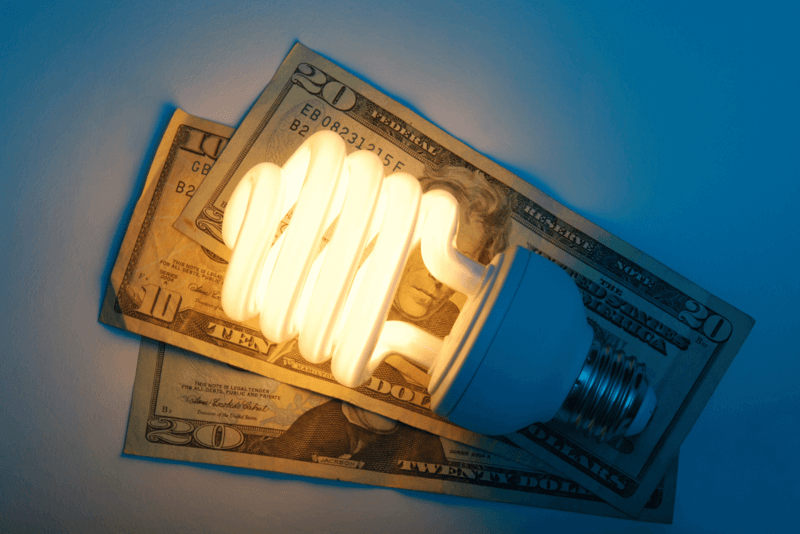How to Save Money on Student Loans

Student loan debt has become a significant financial burden for many graduates, with the average borrower owing tens of thousands of dollars upon graduation.
In general, student loans are expensive. On average, every $1 you borrow will cost about $2 by the time you repay the debt, given the typical mix of interest rates and repayment terms.
Fortunately, there are strategies you can use to save money on your student loans and graduate with little to no student loan debt. We'll cover them now in this article.
Tips for Saving Money on Student Loans
Borrow less. About half of the cost of repaying a student loan is from the principal, not the interest. Moreover, interest is charged on the outstanding principal balance of the loan. Thus, reducing the amount borrowed will reduce the monthly loan payments. You can reduce debt by saving in advance. It is cheaper to save than to borrow. You also can reduce debt by borrowing only what you need, not what you can.
- Choose federal student loans when possible Federal student loans are loans offered by the government to help students pay for their education. They have fixed interest rates and flexible repayment options, including income-driven repayment plans. On the other hand, private student loans are offered by private lenders such as banks or credit unions. They typically have variable interest rates and less flexible repayment options than federal loans. Private loans may require a credit check, and borrowers with poor credit may need a co-signer to be approved. Of the two, federal student loans are the safer and less expensive option.
- Avoid interest capitalization. If interest is not paid as it accrues, the unpaid interest is capitalized by adding it to the loan balance. Interest capitalization typically adds about a fifth to the loan balance when a student graduates. Paying the interest as it accrues will keep the loan balance from growing because of interest capitalization. Avoiding interest capitalization provides a greater financial benefit with private student loans since some capitalize interest monthly. Federal loans capitalize interest once when the loans enter repayment. Also, some private lenders provide interest rate reductions to borrowers who agree to pay the interest or a fixed amount per month during the in-school period.
- Shop around for the lowest interest rate. Lenders do not provide up-front pricing, partly because the interest rates for private student loans depend on the borrower's and cosigner's credit scores (if any). The best-advertised interest rate for a lender might not be the rate you get. So, it is best to apply for several loans and compare them.
- Take advantage of loan discounts. Most lenders offer an auto-debit discount, which reduces the interest rate by 0.25 or 0.50 percentage points. In this scenario, borrowers agree to have the monthly loan payments automatically transferred from their bank accounts to the lender. Some lenders offer discounts and rebates for borrowers who are never late with a payment or who graduate on time.
- Apply for private student loans with a cosigner. Even if you can qualify for a private student loan on your own without a cosigner, you might qualify for a lower interest rate with a cosigner. Lenders base interest rates on the higher of the two credit scores. Also, there might be a slight discount for a cosigned loan since there is less risk to the lender when two borrowers are obligated to repay the debt.
- Get cash back on your federal income tax return. The Student Loan Interest Deduction allows taxpayers to deduct up to $2,500 in interest paid on federal and private student loans. The student loan interest deduction is an above-the-line deduction, so you don’t have to itemize deductions to claim it.
- Choose the repayment plan with the highest monthly payment you can afford. A higher monthly loan payment will cause the debt to be paid off sooner and reduce the total interest paid over the life of the loan, saving you money.
- Accelerate repayment of the highest-rate loans. There are no prepayment penalties on federal and private student loans. If you make extra payments on the student loan with the highest interest rate, it will save you the most money on interest and cause all of your loans to be paid off quicker.
- Refinance high-cost loans at a lower interest rate. Interest rates on private student loans are based on the current credit score of the borrower and cosigner (if any). Generally, credit scores decrease with each year in college due to greater credit utilization and reach a low point shortly after graduation. It can take several years after graduation for the borrower’s credit score to recover if the borrower manages his credit responsibly, paying all bills by the due date. If your credit score has improved, you might be able to qualify for a lower interest rate if you refinance your private student loans.
- Sign up for rebating programs. Upromise not only provides rebates to grow college savings before college, but you can also earn rebates after college to pay down your student loan debt.
Finding Scholarships to Take the Place of Student Loans
Now you know how to save money on student loans, but you're still better off not needing to take many loans out to start with. That's why looking for as much scholarship money as possible is helpful.
You can log into your free Appily account to access an extensive and up-to-date list of scholarships. Save those you’re interested in and come back to apply for them later. Just click the button now to get started.